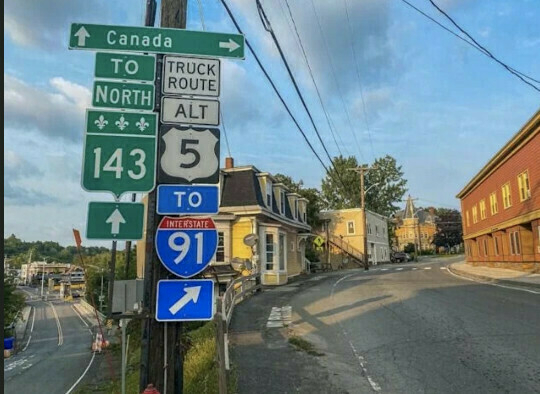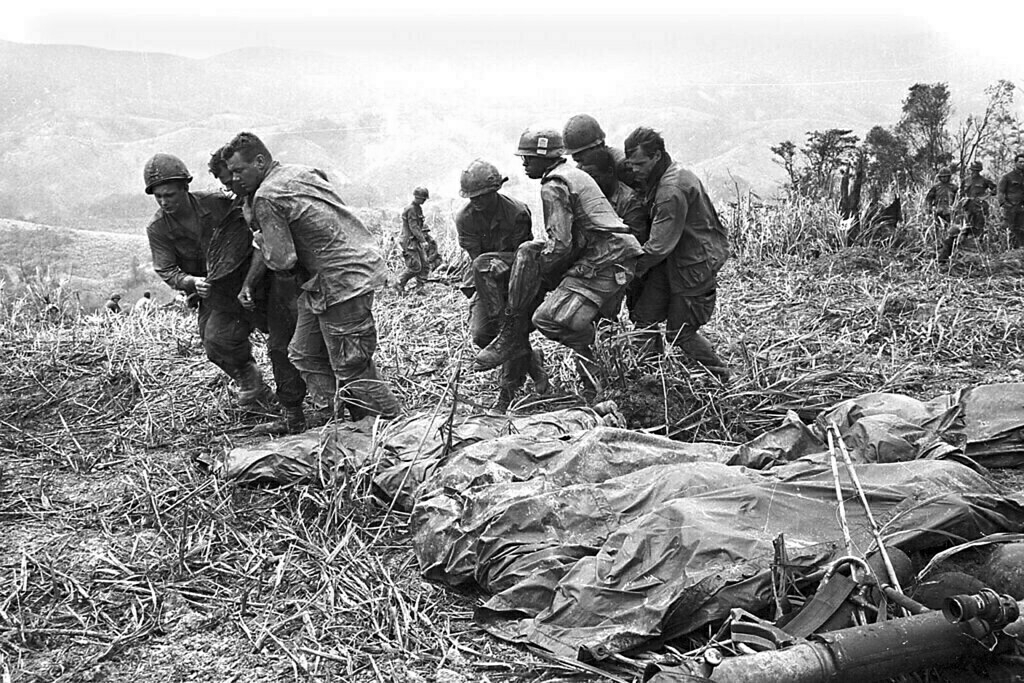
In a very real sense, I grew up with Vietnam. The war the Vietnamese call the “American War” was on television every night. The movie The Green Berets instilled us with the righteousness of the American cause. It was America’s duty to fight godless Communism, though the fact that the Vietnamese were far from godless—we saw the monks immolating themselves on the news—was somehow glossed over.
We were too young for the draft but watched the growing protests with interest. The underground newspaper, the Chicago Seed was not easily accessible to white boys from the suburbs, but we rode the train downtown and got copies there. The war wasn’t going anywhere. There was no talk of winning and no one even knew how to win. In a few years we would be facing the draft ourselves. We wanted no part of it. Saigon was not an option. From Chicago, Canada wasn’t far away. It was a four or five hour drive to Detroit and from there we could cross to Windsor.
As usual, my friend Penis, the third baseman on our church softball team, had a solution. He had an old Encyclopedia Britannica, the 1911 edition. Even though we were only in the 8th grade we had to prepare. We looked up the maps of Vietnam and they looked nothing like what they showed on the news. Of course, there was nothing about the draft and nothing about the draft dodgers who had escaped to Canada. Further research was required.
Somehow Penis got a hold of the Canadian immigration rules. To become a landed immigrant, in other words, to get to stay in Canada and not get turned back, you needed thirty points. Penis explained that you got one point for each year of education you possessed. As we were in the 8th grade, this led to arguments about whether we would be given credit for kindergarten. George had to repeat kindergarten anyway. “I was red-shirted!” he protested. This was because his parents had moved in the middle of the year. None of us really knew what it meant to be red-shirted, but it sounded very sophisticated so we accepted George’s explanation.
”What is kindergarten,” George asked, “if not education?”
We decided to calculate without counting kindergarten. No one was drafted before age 18, so we would—hopefully—finish high school before we had to head east. By then we would have twelve years of education and twelve points. Canada granted five points for the ability to speak English. Most of us, we figured, would get the full five points, but Tommy would probably only get four since he slurred his words and hardly spoke much at all. But for the rest of us, we would be at 17 points. Penis would study French in high school and claimed that his partial fluency would give him at least three points. I had some doubts about that because Penis hadn’t done all that well in Mr. Pantellis’ 7th-grade French class, which met only once per week and didn’t teach us all that much because Mr. Pantellis couldn’t speak French himself. The little we knew started Penis on the path to his final nickname because we knew that if we put the word “le” before any word, it sounded French; hence “Le Richard.” I figured I might get a point for knowing how to say “hello.” You didn’t get any credit from the Canadians for Spanish, unfortunately.

You could get up to ten points if you had a job in Canada, but we had no illusions about that. None of us had experience and except for George, none of us had ever held down jobs. I had been fired from the one job I had, working in the pro shop at the golf course due to an accident with a golf cart. They didn’t have mirrors so how was I supposed to see what was behind me? And yes, so what if it was a building, that doesn’t mean there were mirrors on golf carts. “Could happen to anyone,” I explained, but unfortunately it had happened to me.
You would think that we would work harder on our French in school to get more points, but we knew that wasn’t going to happen. None of us even knew anyone who could speak French. They wouldn’t draft you, even if you were 18, if you were still in high school, so getting held back a year would help and leave you with 19 points. The danger was that by playing dumb you would get expelled and then it was Saigon here I come.
So we needed to at least fake enough French to get two points. Maybe there was an exam, we could cram for that, wouldn’t they give us one or two points for our earnestness? We assumed therefore, that despite our linguistic ignorance, we could do well enough on the test to score at least two points. If we crossed at Windsor we probably wouldn’t get a French-speaking immigration officer and we might just be able to fake it. That would give us twenty.
But we were still ten points away from safety and a life in Canada. Then Penis found out that the immigration officer could award “discretionary” points, up to ten of them.
All we had to do was look, act and sound like we belonged. Fortunately, Chicago had one of the original National Hockey league teams. Becoming hockey fans wasn’t enough, we had to learn how to skate and be fans of a Canadian team and for some reason we picked the Montreal Canadiens. Whenever the Blackhawks played a Canadian team, both national anthems were sung. We listened to the anthem that didn’t sound familiar and figured out that this one was the Canadian anthem. The lyrics were in the Britannica. We figured one verse was enough—after all, it was an anthem and who knows more than one verse of an anthem? Penis learned to play it on the piano so we belted it out as if our lives depended on it, and in a way they did.
They play enough hockey in the Northern suburbs of Chicago so that part was easy. We learned how to skate on hockey skates; that was all they had—for boys at least. I didn’t know how to skate with figure skates, the steps at the beginning of the blade were confusing. I almost ended up being held in contempt of court years later because I had rented figure skates, fallen and broken my arm. But that was much, much later.
When I was still in high school my father asked me what I was going to do about Vietnam. “I think I’m up to 30 points,” I told him. “So it’s Canada.” For this insolence he punched me in the face. I was confident of Penis’ calculations. George had even half-convinced me that I could get kindergarten credit. “Where is kindergarten?” George asked, “in a school right? So if it’s in a school, it’s education.” He had a point, but would the Canadian immigration officer give us that point?
El hombre propone, pero Dios dispone. We were prepared for emigration but God had other plans. The year I turned 18 was the last year anyone was drafted. A few years earlier, to quell student protests, Selective Service had instituted a lottery based on the date of your birth. If your number was higher than 100, you had little to worry about; if your number was higher than 200 you had nothing to worry about. My number was in the mid-200’s. I put my draft card to use for other purposes.
Two years after that, Saigon fell and Vietnam was reunified. Penis went to law school, became a personal injury lawyer and married a woman from Vietnam. I wonder if she taught him any French. He died at age 45 of a heart attack.
Throughout the years, the Canadian national anthem stuck with me, never to be forgotten, as did the immigration rules of Canada, as interpreted by Penis when we were all in the 8th grade. Years later, I went to work for a Canadian law firm. At an Irish saloon on Yonge Street in Toronto, a television showed hockey pregame warmups. The patrons started singing the Canadian national anthem. The boozers stopped their drinking to show respect.
Of course, I joined in.